What Is People-Centered Leadership?
People-centered leadership puts people first—plain and simple. It’s a leadership style rooted in trust, empathy, and authentic connection. Instead of focusing solely on numbers and procedures, it values the individuals who make everything happen. When people feel seen, heard, and supported, they show up more engaged, more resilient, and more ready to contribute.
At The Colonel and The Coach, we teach this approach by blending military precision with coaching grounded in real human connection. The result? Stronger teams, more effective leaders, and a culture where everyone can thrive.
The Foundation of People-Centered Leadership
Core Values That Guide This Style
At the heart of people-centered leadership are five key values:
- Trust
- Integrity
- Humility
- Service
- Authenticity
This style isn’t about being in charge—it’s about walking alongside your team, sharing accountability, and listening with purpose. People-centered leaders communicate clearly, own their mistakes, and show up as their full selves. That kind of honesty builds bonds that last.
Where It Comes From—and Why It Matters Now
This approach has evolved from the rigid, top-down models of the past. Today’s workplaces demand more empathy, flexibility, and inclusion. People want to work for leaders who value their well-being as much as their output.
It’s a shift driven by both social change and business reality: when people are supported, they perform better. Here at The Colonel and The Coach, we help leaders balance structure with heart—and that balance leads to lasting results.
What Makes People-Centered Leadership Different?
Traditional vs. People-First Approaches
Old-school leadership often means command-and-control. Orders come from the top, and there’s little room for feedback or flexibility. People-centered leadership flips that script.
Here’s how it compares:
| Traditional Leadership | People-Centered Leadership |
| Focuses on hierarchy | Focuses on relationships |
| Measures only results | Measures how results are achieved |
| Values authority | Values trust and collaboration |
| Avoids vulnerability | Embraces honesty and growth |
Why the Shift Matters
People-first leadership encourages loyalty, engagement, and shared ownership. Mistakes become learning opportunities, and success is a shared journey—not a solo climb to the top.
The Core Principles in Action
Empathy and Active Listening
Empathy starts with being present. People-centered leaders don’t just nod along; they truly listen. They ask thoughtful questions, hold space for emotion, and respond with care.
This builds trust, encourages open dialogue, and helps solve problems before they escalate.
Empowering Others Through Trust
Empowerment means giving your team the tools, space, and confidence to lead in their own right. Trusting your people to take ownership leads to higher performance and deeper engagement.
The key? Be consistent, follow through on your promises, and support growth every step of the way.
Inclusion and Diversity
People-centered leaders create spaces where everyone feels welcome and heard. They value different perspectives, remove barriers, and elevate quieter voices.
In diverse teams, ideas multiply and solutions improve. Inclusion isn’t just nice—it’s strategic.
Transparency Builds Belonging
Being clear about how decisions are made—and why—shows your team that you respect them. It creates alignment and avoids confusion. Transparency also means being open about uncertainties, which builds credibility.
Communication That Connects
Open Dialogue and Feedback
Create a safe space for honest conversation. Encourage regular feedback—not just top-down, but across the board. Check-ins, team retrospectives, and one-on-ones make a big difference.
And when receiving feedback yourself? Listen, thank, reflect, and apply.
Healthy Conflict Resolution
When handled with care, conflict can be productive. People-centered leaders stay calm, listen first, and work with the team to find solutions—not scapegoats.
Clear communication and shared expectations prevent most issues from boiling over in the first place.
Recognize and Celebrate Often
Recognition doesn’t have to be grand—it just needs to be real. A thank-you at the right moment, a shout-out in a team meeting, or a handwritten note can go a long way. People thrive when they feel appreciated.
Building a Strong, Supportive Culture
Psychological Safety at the Core
A people-centered culture starts with safety. Your team needs to know they can speak up without fear of punishment or ridicule. That kind of trust unlocks innovation and initiative.
You create it by listening, validating, and responding with care—every single day.
Collaboration Over Competition
Healthy teams don’t compete internally—they lift each other up. Foster a sense of shared mission and celebrate wins as a group. That’s how you build real momentum.
Growth Isn’t Optional—It’s Essential
Support your team’s development with coaching, training, and regular feedback. Help them see their strengths, and give them opportunities to stretch and shine.
At The Colonel and The Coach, we believe in developing leaders from the inside out—by focusing on what makes them human first.
Putting People-Centered Leadership into Practice
Action Steps for Leaders
Here’s how to bring it to life:
- Hold regular one-on-ones and truly listen.
- Share information freely and honestly.
- Delegate meaningful work that empowers others.
- Give feedback with clarity and care.
- Celebrate progress, not just outcomes.
Navigating Challenges Along the Way
Change is hard—but consistency builds credibility. If people are skeptical at first, don’t take it personally. Keep showing up with care, and trust will grow.
Balance empathy with clarity. Set expectations, but offer support. And if you need help navigating the shift, seek coaching and community—it’s what we’re here for.
Tracking Progress and Impact
Look at both the numbers and the stories. Engagement surveys, retention rates, and customer feedback tell one part of the story. But don’t forget the personal wins: team members speaking up more, taking initiative, or stepping into leadership themselves.
That’s your culture changing—for the better.
Sustaining People-Centered Leadership Long Term
Keep Growing, Keep Adapting
Leadership isn’t a finish line—it’s a practice. Keep asking for feedback. Stay open to new tools, new perspectives, and new ways of thinking. The best leaders never stop learning.
We recommend building regular reflection and check-ins into your leadership routine. These habits keep you aligned, agile, and connected.
The Big Picture: Lasting Benefits
Organizations that lead with people see:
- Stronger performance
- Lower turnover
- Better collaboration
- A culture that attracts top talent
People feel proud to be part of something meaningful—and they show up fully because they know they matter.
Real-World Stories: What Works (and What Doesn’t)
Success Stories
One company cut turnover by 25% just by introducing open forums for feedback and honest discussion. Another saw performance rise after personal development plans were rolled out company-wide.
And at The Colonel and The Coach, our clients consistently report stronger team connection, clearer communication, and more consistent results. That’s the power of leading with care.
Cautionary Tales
Some leaders miss the mark by focusing only on numbers. One rigid, command-style team lost key talent and failed to deliver. Others fall short by not being clear—leaving teams confused and disengaged.
The takeaway? Ignoring people’s voices and needs creates blind spots that hurt long-term success.
Final Takeaway: Lead With Heart, and Results Will Follow
People-centered leadership starts with the belief that people matter most. When we lead with empathy, clarity, and trust, everything changes—for the better.
At The Colonel and The Coach, we believe the strongest leaders are the ones who serve, support, and inspire. That’s where real growth happens—and where great teams are built.
Frequently Asked Questions
What is people-centered leadership?
It’s a leadership style focused on trust, empathy, communication, and accountability. It puts people—not just processes—at the heart of success.
What are its key components?
Empathy, active listening, transparency, inclusion, and a commitment to shared accountability.
How can I apply it as a leader?
Start by creating open lines of communication, involving your team in decision-making, and providing regular feedback. Focus on growth and connection.
How does this impact engagement and productivity?
When people feel valued and supported, they bring their best. Engagement goes up, and productivity follows.
How is this different from traditional leadership?
Traditional models focus on control and authority. People-centered leadership focuses on trust, relationships, and shared purpose.
What tools can help me lead this way?
Active listening techniques, feedback frameworks, and coaching support from resources like The Colonel and The Coach can help you grow into a more people-focused leader.



Pingback: Leadership Development Goals That Drive Growth